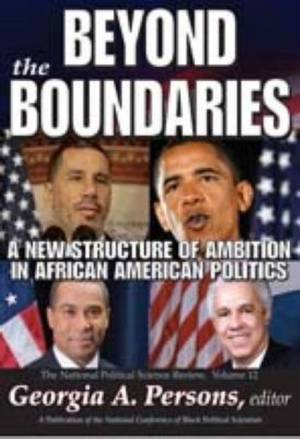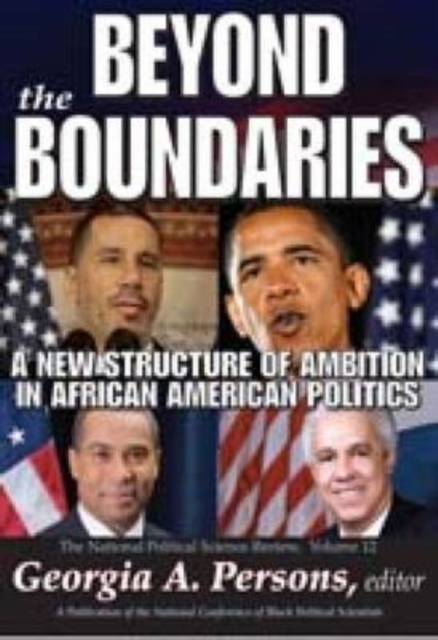
- Afhalen na 1 uur in een winkel met voorraad
- Gratis thuislevering in België vanaf € 30
- Ruim aanbod met 7 miljoen producten
- Afhalen na 1 uur in een winkel met voorraad
- Gratis thuislevering in België vanaf € 30
- Ruim aanbod met 7 miljoen producten
Omschrijving
In the past, African American aspirations for political offi ce were assumed to be limited to areas with sizeable black population bases. By and large, black candidates have rarely been successful in statewide or national elections. This has been attributed to several factors: limited resources available to African American candidates, or identifi cation with a black liberationist ideological thrust. Other factors have been a relatively small and spatially concentrated primary support base of black voters, and the persistent resistance of many white voters to support black candidates.
For these reasons, the possibility of black candidates winning elections to national offi ce was presumably just a dream. Conventional wisdom conceded a virtual cap on both the possible number of black elected officials and the level of elective offi ce to which they could ascend. But objective political analysis has not always made sufficient allowances for the more universal phenomenon of individual political ambitions. Th e contributors to this volume explore the ways ambitious individuals identifi ed and seized upon strategies that are expanding the boundaries of African American electoral politics.
This volume is anchored by a symposium that focuses on new possibiities in African American politics. Both the electoral contests of 2006 and the Barack Obama presidential campaign represent an emergent dynamic in American electoral politics. Analysts are beginning to agree that the contours of social change now make the electoral successes of black candidates who are perceived as ideologically and culturally mainstream increasingly likely. The debate captured in this volume will likely inspire further scholarly inquiry into the changing nature and dimensions of the larger dynamic of race in American politics and the subsequent changing political fortunes of African American candidates.
Specificaties
Betrokkenen
- Auteur(s):
- Uitgeverij:
Inhoud
- Aantal bladzijden:
- 284
- Taal:
- Engels
- Reeks:
Eigenschappen
- Productcode (EAN):
- 9781412810487
- Verschijningsdatum:
- 1/04/2009
- Uitvoering:
- Paperback
- Formaat:
- Trade paperback (VS)
- Afmetingen:
- 178 mm x 251 mm
- Gewicht:
- 498 g

Alleen bij Standaard Boekhandel
Beoordelingen
We publiceren alleen reviews die voldoen aan de voorwaarden voor reviews. Bekijk onze voorwaarden voor reviews.











